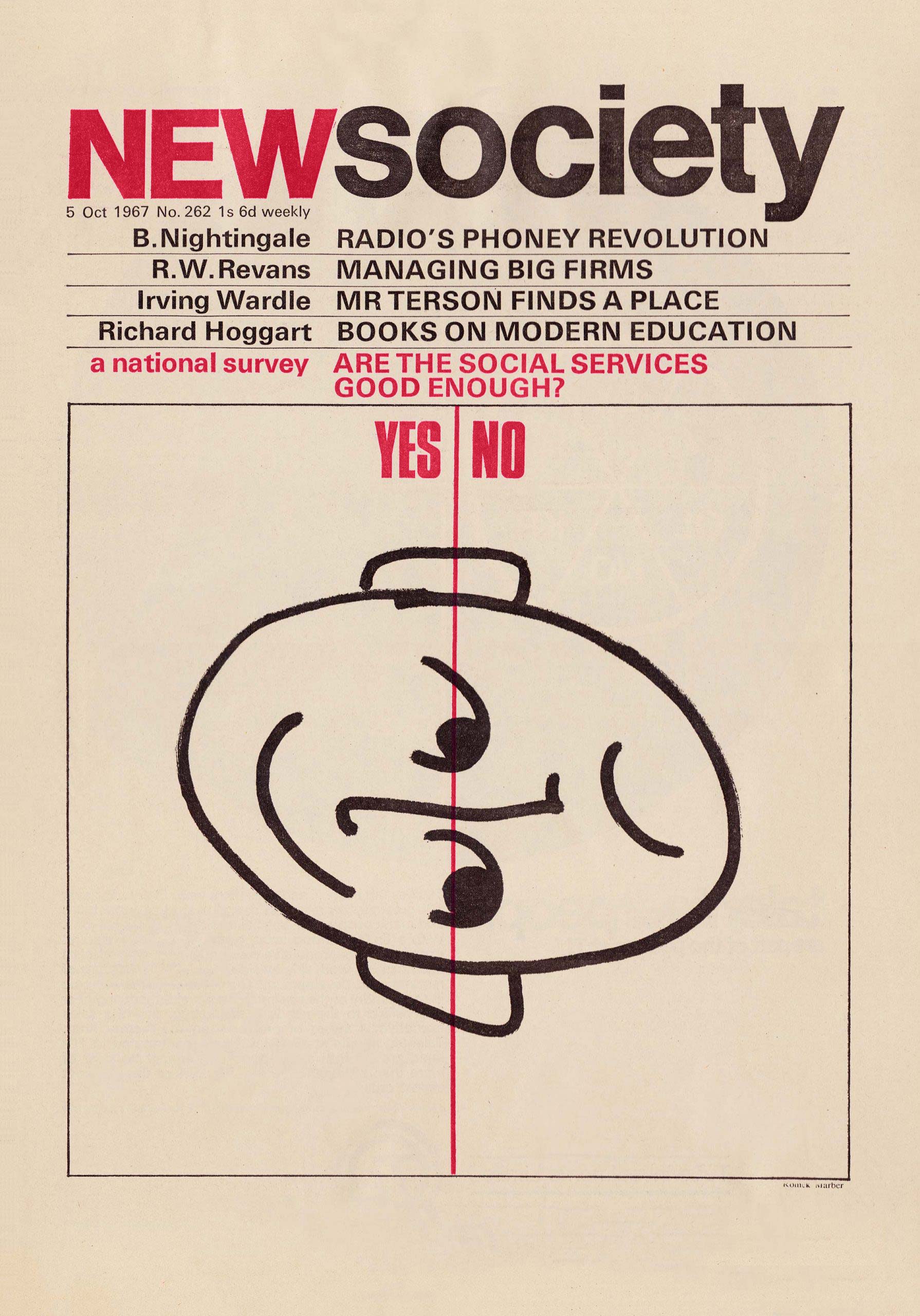Week 3: The 'Problem' Family
This week we focus more on the early and middle years of the twentieth century; tracing how the Victorian 'residuum' was translated into welfare-state era policy through a focus on the 'problem' family.
This seminar will take place in the delightful Modern Records Centre (located just behind the Library - see its location on the campus map). This will give you the opportunity to handle original documents relating to the topic and find out more about the MRC's outstanding collections for twentieth-century British history.
The plan is to meet at the MRC itself during our usual seminar slot. Please go directly to the MRC entrance (the red arrow on the campus map link above) and ask at the searchroom desk/reception for the MRC seminar room.
*Please note: the MRC (like other archives) has certain rules to help with the preservation documents. Food, drink and pens cannot be brought near to the documents. You're welcome to bring bottled water, etc, but this will need to be left in your bag (if you would like to drink you are welcome to leave the seminar space). Laptops/tablets are fine to use for note-taking (though be aware that there may not be readily available charging sockets). However, if you would prefer to take hand-written notes, please use a pencil.*
Seminar questions
- What was the 'problem' with the 'problem family'?
- Which families posed a 'problem' - and why?
- How was poverty 'rediscovered' - and why did this happen when it did?
- What was the role (if any) of the Second World War and post-war economic and social shifts in this process?
- What role did the social sciences play in creating the 'problem family'?
- Are there any connections between the themes explored here and those we examined in the previous week?
Secondary reading
- *Only available as a physical Library item, so not required reading; but good for anyone looking for an introduction or further work for assessments* John Macnicol, 'From "problem family" to "underclass", 1945-1995', in Helen Fawcett and Rodney Lowe (eds), Welfare Policy in Britain: the road from 1945 (Basingstoke: Palgrave Macmillan, 1999), pp. 69-93
- Michael Lambert, ‘Between “families in trouble” and “children at risk”: historicising “troubled family” policy in England since 1945’, Children and Society, 33 (2019), pp. 82-91 [link]
- Chris Renwick, 'Richard Titmuss, eugenics, and social science in mid-twentieth-century Britain', in Plamena Panayotova (ed.), The History of Sociology in Britain: new research and revaluation (London: Palgrave Macmillan, 2019) , pp. 137-160 [e-book]
- Pat Thane and Tanya Evans, Sinners? Scroungers? Saints? Unmarried motherhood in twentieth-century England (Oxford: OUP, 2012) [this is difficult to find in the Library catalogue, please use this link and then sign in via Warwick], chapter 4, 'Unmarried Motherhood in "Family Britain"'
- John Welshman, 'Ideology, social science, and public policy: the debate over transmitted deprivation', Twentieth Century British History, 16:3 (2005), pp. 306-341 [link]
Primary sources
Peter Willmott and Michael Young, Family and Kinship in East London (1957) [later edition available as a Library e-book]
A.F. Philp and Noel Timms, The Problem of 'the Problem Family' (Liverpool: Family Service Units, 1957)
C.P. Blacker, Problem Families: five inquiries (1952)
Sir Keith Joseph's speech at Edgbaston, 19 October 1974 (available via the Margaret Thatcher Foundation website)
New Society dossier
'The meaning of class', 16 April 1964 [PDF]
(Editorial), 'Class and poverty', 28 September 1972 [PDF]
Ian Macpherson and Homer Sykes, 'From pillar to post', 28 April 1977 [PDF] (part of the 'Society at work' series)
Joy Hendry, 'Lady from "the welfare"', 22-29 December 1977 [PDF] ('Society at work' series)
Dennis Marsden, 'Drowned voices', review of Jeremy Seabrook's What Went Wrong? , 2 November 1978 [PDF]
Eric Briggs and Tony Rees, 'Lost in the puzzle of social security', 10 January 1980 [PDF]
Jeremy Laurance, 'Captive families: when parents lose their children', 27 May 1982 [PDF]
Jeremy Seabrook, 'Beveridge's five evils return', 28 February 1985 [PDF]
Alice Thomas Ellis, 'A family on the couch', 11 March 1988 [PDF]
Further reading
Jordanna Bailkin, 'The postcolonial family? West African children, private fostering, and the British State', The Journal of Modern History, 81 (2009), pp. 87-121
Kieran Connell, ‘Race, prostitution and the New Left: the postwar inner city through Janet Mendelsohn’s “Social Eye”’, History Workshop, 83 (2017), pp. 301-340
Pat Thane, 'The welfare state at the end of the long boom: summary, synthesis and further thoughts on the British model', in E. Eklund, M. Oppenheimer and J. Scott (eds), The State of Welfare: comparative studies of the welfare state at the end of the Long Boom (Oxford: Peter Lang, 2018), pp. 199-217
Mathew Thomson, Lost Freedom: the landscape of the child and the British post-war settlement (Oxford: OUP, 2013), chapter 3, 'Bowlbyism and the post-war settlement', pp. 79-105
John Veit-Wilson, 'The National Assistance Board and the "rediscovery" of poverty', in Fawcett and Lowe (eds), Welfare Policy in Britain: the road from 1945 (Basingstoke: Palgrave Macmillan, 1999), pp. 116-157
John Welshman, Underclass: a history of the excluded since 1880 (London, 2013 [2006])
John Welshman, From Transmitted Deprivation to Social Exclusion: poverty, policy and parenting (Bristol, 2012)

